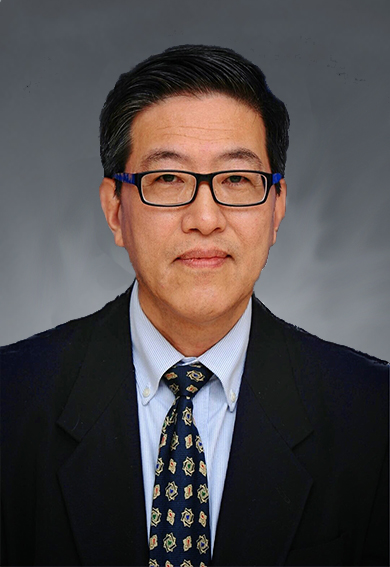-

- Li Weijian
- Senior Research Fellow
- Center for west Asian & African Studies
- Institute for Foreign Policy Studies
- Prof. Li Weijian interviewed by Global Times on the situation in Afghanistan
- Li Weijian:US leaves Iraq in tatters to target China, but still keeps the region on radar
- Middle East needs multilateral solutions to end violent cycles
- Despite hurdles, biggest wish of Afghans remains peace
- A US-Iran military conflict unlikely
- WHAT IF CLINTON WINS ——US President...
- China’s Foreign Policy under Presid...
- Seeking for the International Relat...
- PRESIDENT BUHARI’S BALANCING ACT BE...
- Beyond the Strategic Deterrence Nar...
- China’s Role in African Security Is...
- Three Features in China’s Diplomati...
- America’s 2016 Election Risk, China...
- From U.S. Regime Change to Chinese ...
- Greater Role to Africa and Developi...
- Identifying and Addressing Major Is...
- The Establishment of the Informal M...
- Wuhan 2.0: a Chinese assessment
- The Future of China-India Relations
- Chinese Perspective on Challenges f...
- The Russia-India-China Trio in the ...
- Balancing Leadership in Regional Co...
- The Russia-India-China Trio in the ...
- New Developments Impacting Asia Pac...
- ASEAN, China and the South China Se...
- China-U.S. Collaboration --Four cas...
- Competition without Catastrophe : A...
- Lies and Truth About Data Security—...
- Health Silk Road 2020:A Bridge to t...
- Competition without Catastrophe : A...
- China-U.S. Collaboration --Four cas...
- The Tragedy of More Missed Opportun...
- The US Initiatives in Response to C...
- Building Development Partnership: E...
- The Tragedy of Missed Opportunities
Russian Ambassador to Turkey Andrei Karlov was assassinated by a Turkish police officer at an Ankara art gallery Monday. "Do not forget Aleppo! Do not forget Syria!" the gunman is heard shouting in a video of what leaders of Turkey and Russia called a "provocative" terror attack. The shooting is not surprising.
The Islamic State (IS) has witnessed heavy losses and has been squeezed since Russia deployed its military forces to Syria. Despite setbacks, the terrorist group will not easily give in and is highly like to shift focus from public provocations to "lone wolf" terrorist attack. Jihadists that sneaked into the Middle East to join the IS are flowing back, and, not resigned to their failures, will commit more individual terror attacks elsewhere in the world. Apart from the return of jihadists, those who sympathize with, support and approve of the IS may launch "lone wolf" attacks as well. It is predicted that such terror activities will frequently occur for a long time in the future.
The assassination is also closely connected to Turkey's politics. The Turkish government's attitude to the Syrian crisis has undergone a U-turn in recent months. While Ankara supported rebel forces to uproot Bashar Assad's regime and ratcheted up tensions with Moscow with the downing of a Russian fighter jet, Turkish President Recep Tayyip Erdogan is now getting closer to his Russian counterpart Vladimir Putin and is attempting to forge intimate ties with Russia.
The dramatic changes in Ankara's attitude have sparked huge controversies at home. The Turkish police officer may have been dissatisfied with Ankara and the fact that Aleppo has been retaken by Syrian government forces with Russia's help, and thus assassinated the ambassador to vent his anger.
The Kurdish-Turkish conflicts are another issue of concern. While Turkey has long regarded Kurds as one of the largest threats to its security, Russia's actions in Syria have indirectly supported Kurdish fighters. Although it still remains unclear whether the attacker is connected to anti-Kurdish forces, the Kurdish-Turkish conflicts cannot be underestimated in analyzing the Syrian issue.
Russia is unlikely to take retaliatory measures against the Turkish government for the ambassador's death. While the Kremlin launched economic sanctions against Turkey, and discouraged its citizens from traveling there after the jet incident, things have changed now. Ankara has normalized ties and is actively seeking to enhance its relations with Moscow, and the Kremlin will not blame the Turkish government for the ambassador assassination.
However, Russia will demand that Turkey should put more efforts into and take coordinated actions with it in anti-terror battles. The assassination is just the beginning of the new wave of terror activities, and Russia is highly likely to be targeted in future attacks. Hence, the Kremlin wants more intelligence exchanges with Ankara to stifle anti-Russia sentiments at the source.
Although Ankara takes the same stance as Moscow on the incident and immediately criticized it as a "provocation," Turkish public dissatisfaction against Moscow cannot be ignored. Given the conflicts over Assad's regime and the Kurdish issue, public anger with Russia is understandable. The Turkish government should have the capability to control the situation and lead public opinion toward being in favor of the Ankara-Moscow relationship.
The relationship between Russia and Turkey is seeing an upward trend and will not be fundamentally affected by the assassination. After the cease-fire in Syria, Russia is preparing for political negotiations and attempts to tie Turkey to its chariot. Ankara's attitude on the Syrian issue is of vital importance for Moscow to win more bargaining chips in future negotiations, and thus the latter does not want any negative impact to its relationship with the Turkish government.
Russia will have more say over the Syrian issue in Donald Trump's era. While the next US President is likely to continue its strategic contraction in the region, Russia will be more influential to regional countries.
Source of documents:Global Times, Dec 20 , 2016
